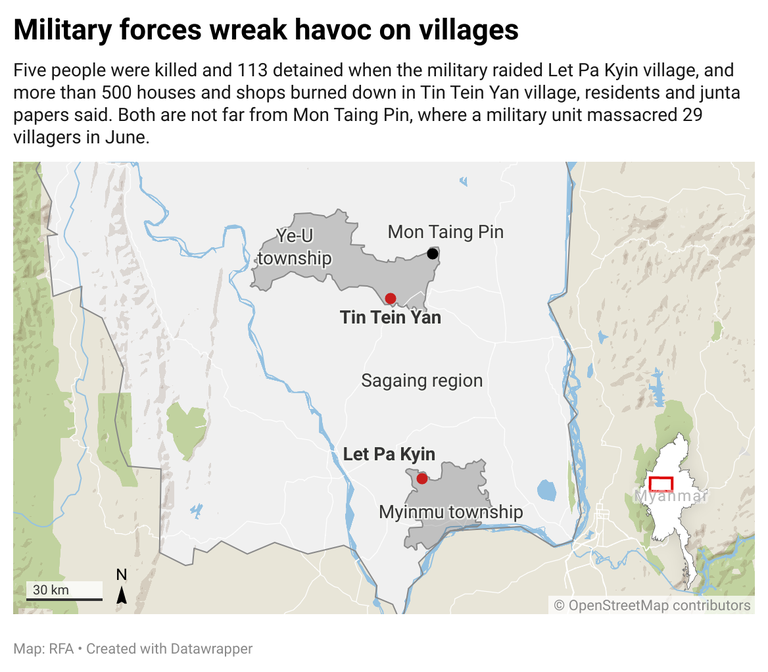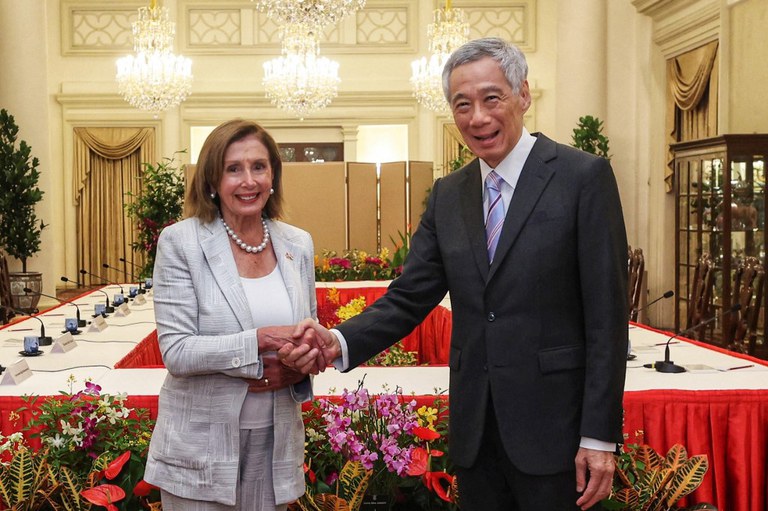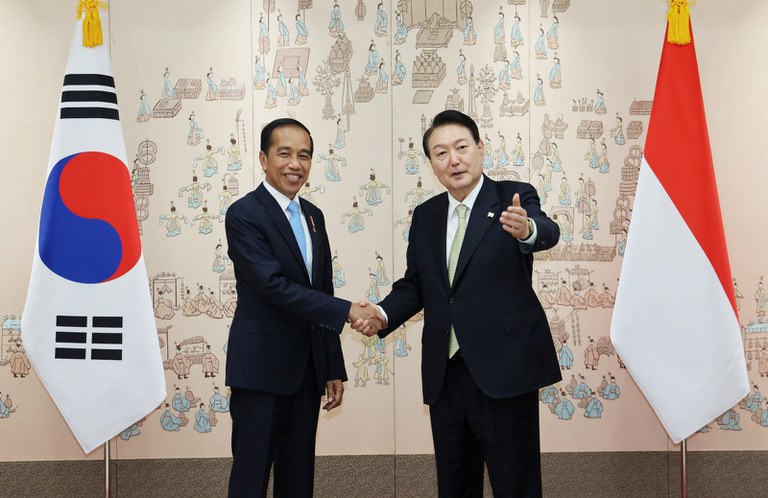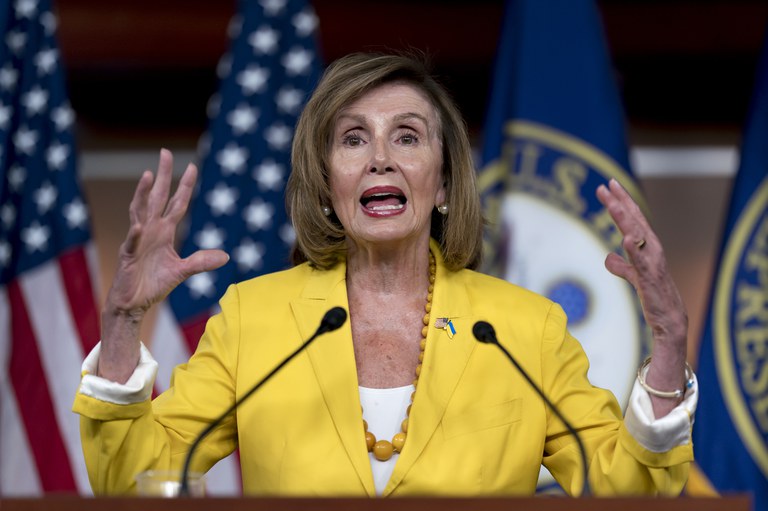The U.N. Security Council condemned the Myanmar military’s execution of four democracy activists over the weekend but stopped short of calling for new sanctions against the junta as its forces continued attacks in the country’s Sagaing region. A statement issued on Wednesday by the 15 members of the council echoed one issued on Monday by the Association of Southeast Asian Nations (ASEAN) denouncing the killings of the activists despite numerous appeals that their death sentences be reconsidered. The Myanmar military, which overthrew the elected government in a February 2021 coup, said on Monday that it had executed the activists for aiding acts of terror as part of the civilian opposition and resistance to the regime. The Security Council response “noted ASEAN’s call for utmost restraint, patience and efforts to avoid escalating the situation, and for all parties concerned to desist from taking actions that would only further aggravate the crisis.” The statement also called for the full implementation of the five-point consensus agreed to in April 2021 to end to violence in post-coup Myanmar and put the country back on the path to democracy. And it called for the immediate release of deposed leaders President Win Myint and State Counsellor Aung San Suu Kyi. Security Council members also called for “an immediate halt to attacks on infrastructure, health and education facilities, for full respect for human rights and the rule of law, and for full, safe and unimpeded humanitarian access to all those in need.” But Justice for Myanmar, a group of activists campaigning for justice and accountability for the people of Myanmar, criticized the U.N. council’s response as insufficient. “Yet, no sanctions, no referral to the Int’l Criminal Court + members #China, #India & #Russia continue to arm the Myanmar military. Time UN Security Council ends its shameful inaction!” the group tweeted. The Group of Seven (G7) foreign ministers of Canada, France, Germany, Italy, Japan, the United Kingdom, and the United States, and the High Representative of the European Union also condemned the executions. “These executions, the first in Myanmar in over thirty years, and the absence of fair trials show the junta’s contempt for the unwavering democratic aspirations of the people of Myanmar,” they said in a statement issued Thursday. “We continue to condemn in the strongest terms the military coup in Myanmar and express deep concern about the political, economic, social, humanitarian and human rights situation in the country,” they said. Thousands flee homes in Sagaing The criticism by the U.N. and G7 came as at least 10 civilians, including two teenagers, were killed in Sagaing’s Khin-U township and more than 10,000 others from 17 villages fled their homes amid clearance operations by junta forces that began last week, local sources told RFA on Thursday. Northwestern Myanmar’s Sagaing region has the largest number of participants in the anti-junta Civil Disobedience Movement, a strike of professionals like doctors and teachers to resist military rule, and the strongest armed resistance to the junta. Among the dead in Khin-U township are Khant Nyein, 13, from Myin Daung village; National League for Democracy township organizer Aung Naing Win, 35, from Shin Min Dway village; Aung Hman, 66, from In Daing Gyi village; Htay, 52, from Myin Daung village; Si, 89, and Ohn Thee, 35, from Letpanhla village; and Pho Khoo, 18 from Laung Shey village, the sources said. RFA does not yet know the identities of the others killed. A township resident, who found the charred body of Aung Naing Win, said the army brutally killed ordinary civilians. “The military has been attacking villages in the area in four columns in the past 10 days,” he said, adding that soldiers burned about 50 houses and mostly slit the throats of those who were killed. The elderly woman named Si died on Wednesday when her house in Letpanhla village was set on fire, another local said. “The woman died in a fire that burned 11 houses,” said the local who declined to be identified for safety reasons. “They set fire to the house knowing that she was inside.” Another township resident said more than 10,000 people from 17 villages were forced to leave their homes and around 50 homes were destroyed by fire due to the military raids in the area. “There are about 12 villages in the surrounding area, and there must be about 12,000 to 13,000 people [who have fled their homes], the person said, adding that residents usually ran to nearby communities about two or three miles away. A resident of Moung Kyauk Taw village, who did not want to be named for safety reasons, said he saw the soldiers set fire to the village, destroying more than 20 houses. “It wasn’t an accidental fire. It was arson. We have witnesses,” the person said, adding that he and others watched soldiers enter the community and saw three or four of them set fire to the houses. “We lost everything, and we have no place to live. We can’t buy any palm leaves [for roofing], and we don’t have money. We are now living under bullock carts,” he said. Locals said they did not know which battalion the soldiers who raided the villages were from. RFA could not reach military spokesman Maj. Gen. Zaw Min Tun or Sagaing military council spokesman Aye Hlaing for comment. Myo Aung, an official from the township’s Letpanhla village, said the actions of Myanmar’s junta were “cruel and inhumane.” Rural areas bear brunt The latest killings came despite claims by the shadow National Unity Government (NUG) that public administrations under its direction control around 80% of the region’s rural areas in 36 townships where the military has not been able to exert its influence. “People’s police forces have also started to be established to ensure the rule of law in areas where the public administrations have begun to operate,” said NUG spokesman Kyaw Zaw. Public administration officials said the NUG hands down its policy and agenda to public administration groups at the township level…






